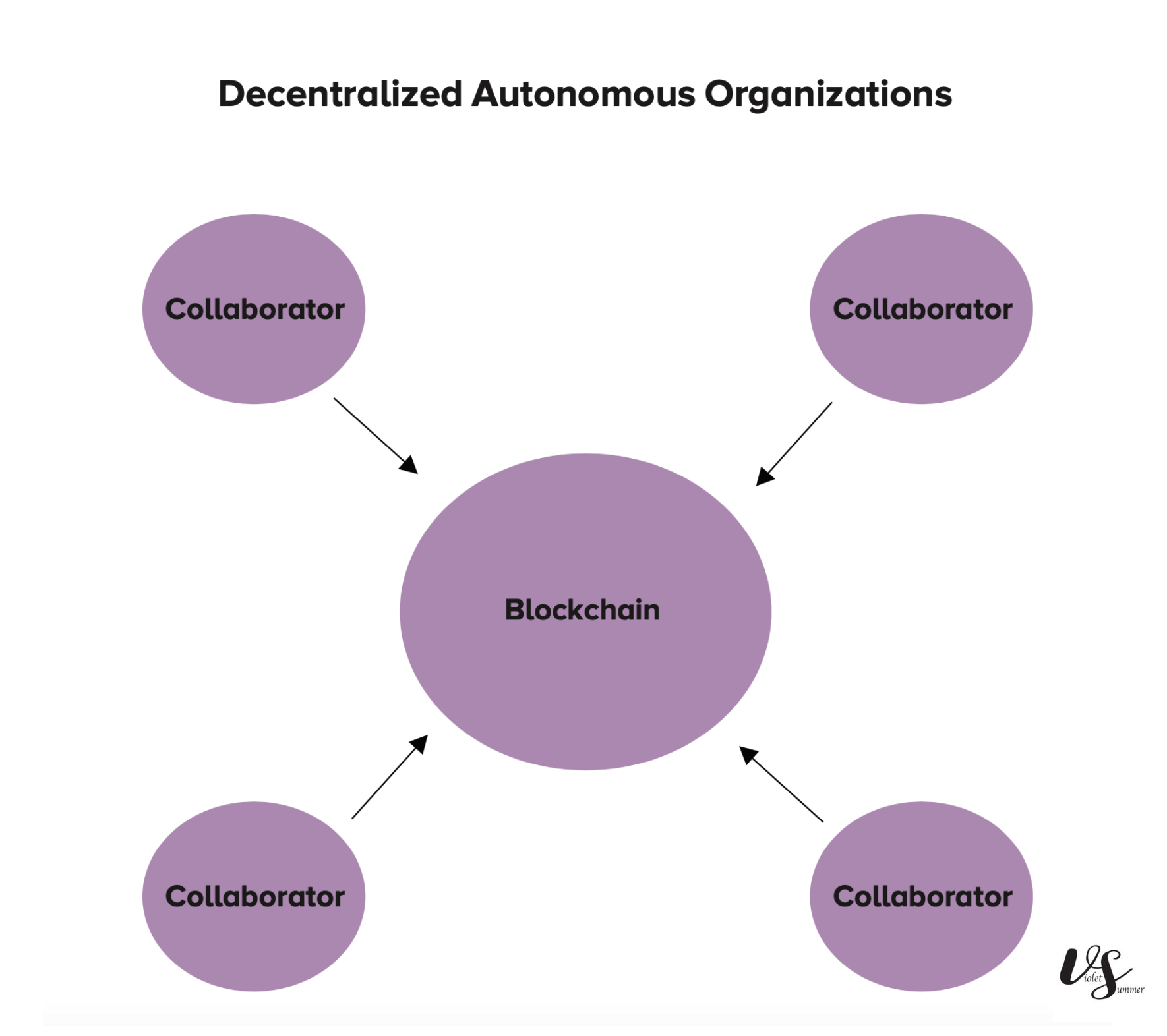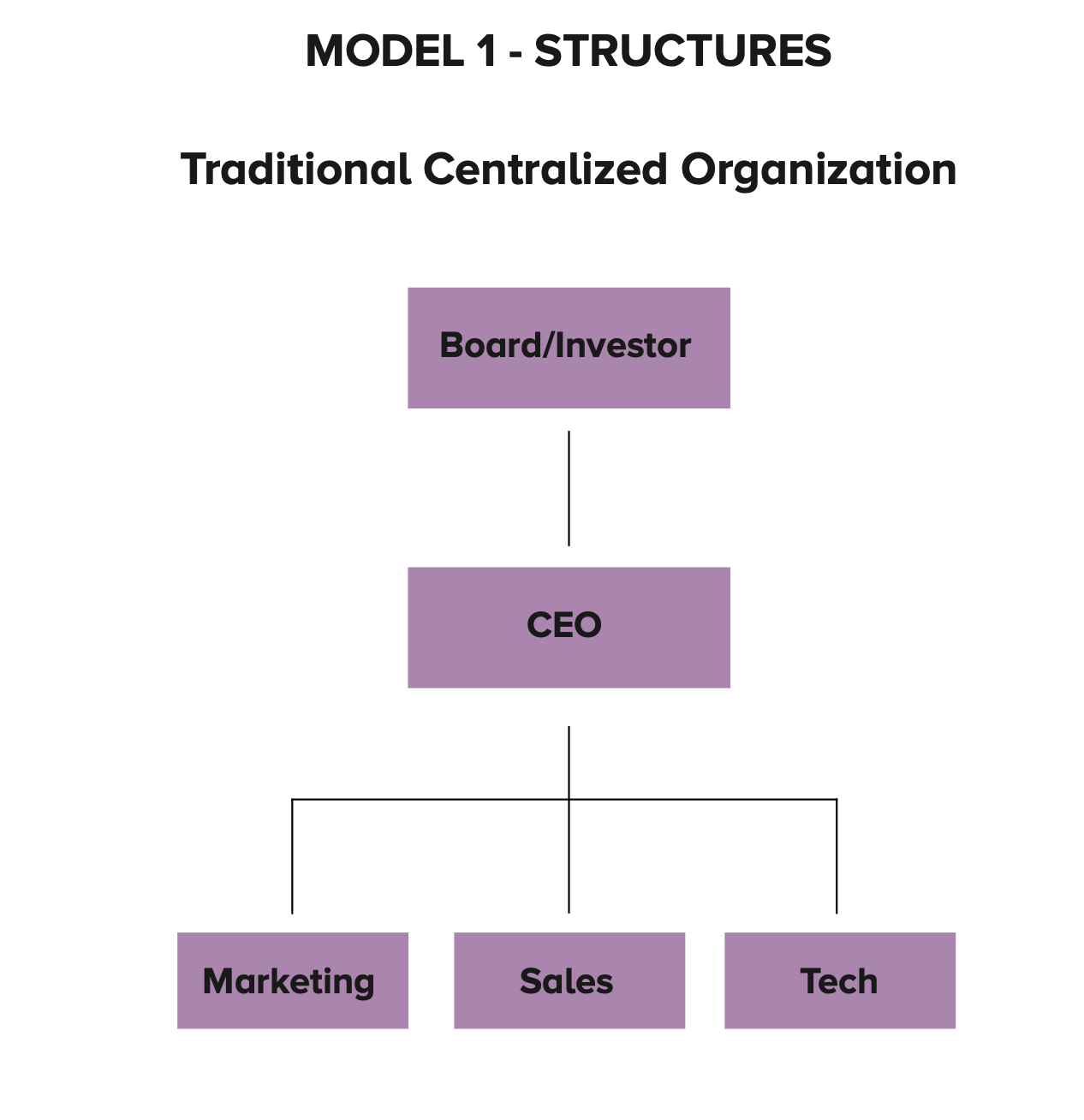The emergence of decentralized autonomous organizations, known as DAOs, could replace top- down hierarchy structures with self-management- driven strategies. In a recent Trust Barometer study conducted by Edelman, business institutions rank higher than the media and government when it comes to trust. The shade is real and it gets even realer in Black and Latino communities. We don’t trust anyone. This same survey also found that among the 33,000 respondents, they have little trust in societal leaders – including CEOs and journalists – and are more likely to trust local leaders and familiar people within the community. So what does this mean for DAOs, a fairly new concept about collaboration on the blockchain?

Part 1 of Companies don’t go global; people do.
The attraction of DAOs is that they have the range to eliminate barriers to building communities – a range that promotes forward-thinking collaboration embedded in the blockchain. NFT art platform Foundation recently highlighted several creative groups who have taken the leap into operating in the DAO space, including Twitter-organized group PleasrDAO, which recently crowdfunded $ETH to bid on a rare NFT piece from infamous political figure Edward Snowden. HerStoryDAO founder Cyn Behati is also forming a DAO to capture and monetize Black female storytelling.
Although use cases are still developing, we cannot overlook the fact that these organizations are a very new way of doing business, whether from a non-profit or for-profit viewpoint. DAOs aim to (and will) switch the game up. They are the business version of that saying, “what are you bringing to the cookout?” Usually, you flex with your best dish or bring something that every cookout needs, like paper plates, ice, etc. The same can be applied to DAOs and how to contribute and get rewarded on chain. They could be viewed as for-purpose business structures, where everyone benefits and there are no secrets because the role of the blockchain is to synthesize transparency. They may compete with or provide solutions for companies within the same industry – or perhaps share the same mission statements.

Model 2 provides a competitive analysis of DAOs and how they function with other open-source entities. Open-source is an ideology where everything can be cloned and remixed to how you want it. If you buy a pair of Jordan sneakers and you don’t like the color, you could recreate them to your liking and then sell your remixed version to your community without getting sued. The original person who made the sneakers would still get credit because they’re the originator. This has never been the case for traditional companies. Intellectual property is locked deep in vaults, along with money, gold, and other valuables, untraceable on balance sheets or not made available to the employees that keep the company fresh and prospering. This is why DAOs may be more attractive to Black-owned companies who have been disproportionately left out of capitalistic bull runs. Yet, the majority of Black-owned businesses have an underlying mission to empower their communities. They trade goods and services based on trust and conviction. I deeply admire The Roots Collective and Miami Dade County Street Response in South Florida. These organizations have dedicated their time, attention and resources to feeding, clothing and providing healthcare to hundreds of underserved people for FREE. They don’t know much about crypto and Web3, but their community-centered infrastructure that has thrived for years without government assisted grants and political support speaks volumes to how much a DAO structure could make their modern Black power business even more powerful on chain.
According to Investopedia: “Ninety-six percent of Black-owned businesses were non employer firms, compared to 80% of all small businesses. Thirty-two percent of Black-owned employer firms were in the healthcare and social services sector.”
The opportunities are endless for individuals who are motivated by the idea of functioning in a for-purpose world. Here are three ways DAOs shake up the economically-sound cultural landscape:
1 - DAOs are led by no hierarchical structures and rely on blockchain governance. Model 2 best illustrates how existing entities can follow governance with open- source signals. DAOs consist of computer protocols that make decisions based on pre-set nodes tied to incentives and rewards. Imagine a world of employee self-management, absent of corporate policing that gets in the way of success and growth. A world where tasks are shared on an unbiased scale and new technologies, like Filecoin and Meroxa Data, are used to shape the future of automated processes for multi-functioning teams. DAOs are the entry point to get people into the Crypto environment. As we move into a world where NFTs and smart contracts become mass adopted, additional layers for how we function as a society will also need to connect – to marry these concepts on what business truly means in the 21st century.
2 - With DAOs, tomorrow’s creative agencies, NGOs, and Africa-based fintech companies can re-establish and switch the game up, centering it on people-driven interests and rewarding good contributions and behavior. Currently, black people make up about 12.3 percent of the US workforce and black women are starting new businesses faster than any other demographic. If we zero in on why black women are starting their own businesses, it’s because they don’t benefit from traditional business models that historically weren’t made for them to succeed in the first place. DAOs are about wealth redistribution and how creative people can be with doing business. The late NAACP Political Strategist Ella Jo Baker was legendary in organizing movements based on non- traditional models.
In this JStor research paper excerpt below, Ella Baker, the well-known mother of the Civil Rights Movement, writes about capitalism and why it has harmed Blacks in the workforce:
“The roots ... of the Bronx Slave Market spring from: (1) the general ignorance of and apathy to- wards organized labor action; (2) the artificial barriers that separate the interest of the relief administrators and investigators from that of their “case loads,” the white collar and professional worker from the laborer and domestic; and (3) organized labor’s limited concept of exploitation, which permits it to fight vigorously to secure itself against evil, yet passively or actively aids and abets the ruthless destruction of Negroes.” -- ELLA BAKER, ‘BLACK WOMEN’S WORK’ AND ACTIVIST INTELLECTUALS via JStor
Ella Baker gained prominence in the political sector for organizing and strategizing with the NAACP. She was skilled in organizing and was well-respected for her thought leadership in the 1960s. I was drawn to her work and research as a political scientist studying for structure design of organizations. Baker's work on structure is important because she realized that having structures, rules, and procedures can be used beyond the organizational level (Costigan & Hayes). Her significant contributions to the Civil Rights Movement have led to many activities being named after her such as the Ella Baker Center for Human Rights and the Ella Baker Day of Service. She is an inspiration to me as a political scientist because of her thorough research, strategy skills, commitment to social justice movements, and ability to lead while empowering those who participated in grassroots movements.
I wonder what could have happened if she had the power of blockchain to move currency freely or create her own currency to carry out her mission?
3 - As we begin to refine the way we build products to scale across Africa and Asia and into the global diaspora, we note that DAOs are borderless and speak all languages. Business owners won’t have to register a company to add a new region of interest. Federal taxes or unpredictable international legal ramifications – which keep many businesses from expanding to global markets – will be reallocated to creators, organizers, and tokens for the betterment of the movement.
It’s become conventional wisdom in the business world that companies don’t go global; people do. I completely agree. People have been (and will still be) an intellectual asset. Staying influential in a changing technological space means surviving and thriving on business trends, while still being able to dream up new ways to innovate and forecast what comes next.
This article was originally published in March 2021 in Violet Summer’s Crypto in the City column. It has been lightly edited for brevity. Prior to writing this article, I was not actively participating in any DAOS. Part 2 of my experience with DAOS is coming soon.